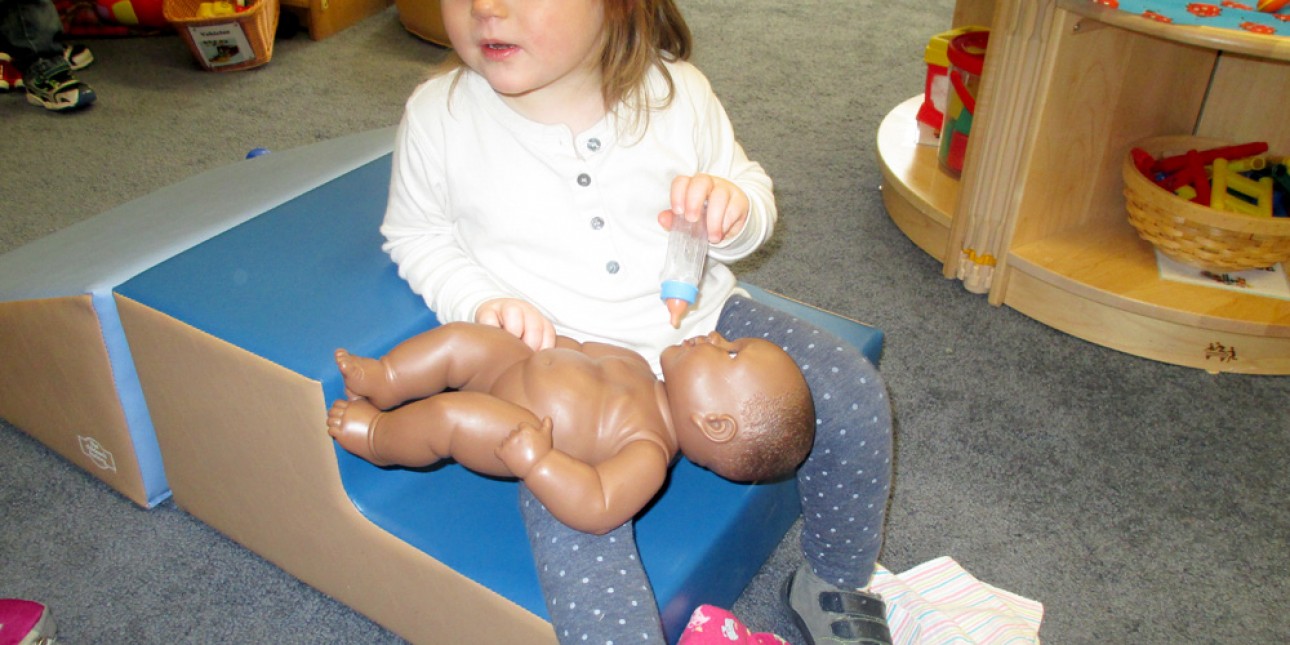In the Classroom: The Caterpillars

Pretend Play is Serious Business!
PIC is known for encouraging children to learn through play. In the Caterpillar infant/toddler room, the children learn through pretend play every day.
Pretend play requires children to use their imaginations. Through pretend play children develop essential social and emotional skills. When children pretend play, they interact with one another and often act out a certain role, which gives them a sense of purpose. This sense of purpose can give a child a feeling of importance and help develop self-esteem.
Pretend play also helps build language skills. When participating in pretend play, children often use words or phrases they may have witnessed adults saying during every day activities. It is important to encourage a child to use their words when playing.
The learning centers in the Caterpillar room are set up especially to encourage pretend play and all our children have their favorite centers. Alice and Khalil enjoy playing with baby dolls in the dramatic play center. Every day the two of them grab a doll and wrap them in blankets. They also like to feed their babies a bottle. Alice enjoys baby dolls so much that she often will take her favorite baby doll home.
Maren, Arden, and Sylvia enjoy playing in the kitchen. The three girls love "cooking" with pots and pans. They will put food on dishes and serve their teachers. “Apple”, Sylvia often says as she gives her teacher a pretend apple on a plate. Maren likes to say “water” as she stirs her spoon in a cup.
Pretend play can help children develop many skills. Children (and even their parents) may not realize that they are learning during play. One of the greatest elements of pretend play is that it is led by the children. Whatever they wish to happen depends on their imagination.
It is easy at home to encourage this type of play. You can set up activities that require children to use their imagination. All you need to do is provide the materials, sit back, let your child lead the learning.
